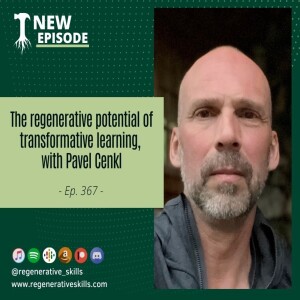
Friday Feb 21, 2025
The regenerative potential of transformative learning, with Pavel Cenkl
Today I want to start a fun new series on a topic that I’ve wanted to explore for quite a while, which is the concept of regenerative education.
I’ve worked as a teacher and educational facilitator in different capacities since the beginning of my career, first in before and after school programs for kids, then as an arts and environmental educator at summer camps, then English as a second language in both South Korea and Guatemala, and in between teaching various technical workshops in natural building, permaculture, ecosystem restoration, the transition journey to regenerative agriculture, and of course water management and water cycle restoration.
Every time I engage in these activities I gain huge respect for teachers and the incredible skill and patience it takes to be an effective educational facilitator. Similarly, I want to continue to grow as a teacher and even improve my skills as a student since I’m also always in some sort of course or other at the same time.
I know this is a wide and nuanced topic and so to help me to become oriented to the considerations and scope of what I’m exploring, I reached out to Pavel Cenkl, who is the Academic Dean at Prescott College in Arizona (US) and the Founder of the Regenerative Learning Network. His work focuses on the intersection of transformative learning, community, and ecology and building a more regenerative, resilient, and equitable educational future. He’s also the author of several books including Transformative Learning (with Satish Kumar), “Relational Ecologies: Building Regenerative Community Learning Networks” in Regenerative Ecosystems in the Anthropocene (2023) and “Lessons from the Periphery” in Regenerative Learning (2022). Pavel’s current book in progress is titled Networked Learning: Transforming Higher Education through Distributed Learning.
This conversation weaves from the troubles with traditional or conventional educational models and why they leave so many behind, and increasingly in debt, through alternative models of teaching and the potential that educational institutions really have. We explore the role of technology in learning as well as the things the digital world can’t replace. Pavel also give his take on what makes effective educators and a window into their process of creating learning curriculums that are in line with the concept of regenerative education.
This is the first in a series of interviews that I’m in the process of planning so if you have any ideas of what questions I should explore or who I should speak to in upcoming interviews, I encourage you to reach out to me through the Regenerative Skills Discord server.
No comments yet. Be the first to say something!